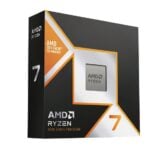Valve has registered the trademark ‘Neon Prime’ for use in game software
The company’s last major release was Half-Life Alyx in 2020

Valve has registered the trademark ‘Neon Prime’ for use with video game software.
The United States Patent and Trademark Office lists two records for the Neon Prime trademark filed by the Half-Life firm in September.
The ‘Goods and Services’ section of one Neon Prime record lists the following: “Computer game software, electronic game software, video game software, computer game programs downloadable via the internet.”
The goods and services listed on the second record focus on video games too but are more broad ranging, including the organisation of gaming competitions and video game education.
Commenting on the Neon Prime trademark, a Resetera user who seemingly used to be a Valve employee said: “Hmm wonder if this is finally the FTL-like ship building game we were working on once upon a time, or if that got shelved. I guess time will tell.”
It’s unclear if Neon Prime relates to a game or another type of product being in development at Valve, which owns digital distribution platform Steam and also recently launched its handheld gaming PC Steam Deck.
However, Valve co-founder and CEO Gabe Newell said last year that the company had multiple games in development and was keen to make more single-player experiences following Half-Life Alyx’s release in March 2020.
“We definitely have games in development that we’re going to be announcing — it’s fun to ship games,” he told 1 NEWS.
“Alyx was great — to be back doing single-player games, that created a lot of momentum inside of the company to do more of that.”
However, Newell refused to be drawn on the subject of new Half-Life and Portal games when questioned about potential sequels.

“I’ve successfully not spoken about those things for a long time and I hope to continue to not talk about them until they are moot questions,” he said. “Then we’ll move on to a new set of questions.
“The nice thing is, by not answering those questions, I avoid the community coming up with new, equally-difficult-to-answer questions.”
















